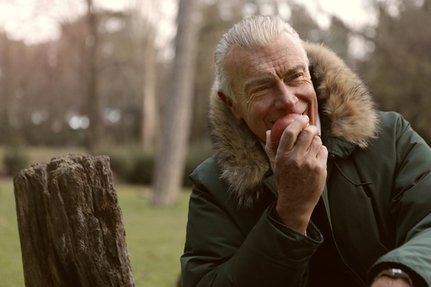
No matter your age, it is important to eat a balanced diet that fuels your mind and body. It’s also one of life’s greatest joys to eat things that taste good! As a senior, balancing those two factors of your diet is even more important.
Where do the two meet? How can you make sure you are getting the nutrition you need to age gracefully and as healthily as possible?
It’s easier than you might think, and you don’t need to make any drastic changes. Your nutrition needs may change as you get older but enjoying the things you eat is still possible – and important for your mental health.
Let’s take a closer look at why your diet is so important, what you can do to make healthier choices, and why it’s never too soon (or too late!) to get started.
What your diet can do...
Your diet has an impact on your mental and physical health at every age. But, it becomes an even greater health factor as you get older. Seniors are more prone to a variety of illnesses and conditions that don’t often impact younger people as much, including:
- Cardiovascular disease
- Hypertension
- Cancers
- Diabetes
- Arthritis
- Osteoporosis
Your vision can change as you age, too, and certain things can be unavoidable. But, your diet can contribute to poor eyesight and may even increase the risk of vision conditions like glaucoma, cataracts, or macular degeneration.
While eating a healthy diet can’t completely remove your risk of these conditions, it can lower your chances. A nutrient-rich diet will also improve your overall well-being and health, making you stronger to fight off illnesses or other health conditions.
Keep in mind that it’s not just your physical health you should be considering, but your mental health, too. An unhealthy diet can increase your risk of experiencing anxiety or depression. Many seniors already struggle with mental health issues brought on by loneliness or isolation, so making healthy choices elsewhere makes a big difference.
How to make healthy choices...
So, how can you make healthy diet choices without giving up some of your favourite foods? You can still have a piece of pie once in a while. You can still go out for pizza. An ice cream cone isn’t going to ruin your diet.
The best thing you can do is follow a diet that includes a wide variety of foods. This will keep you from getting bored and will help to ensure you’re getting the nutrients you need. Make sure you’re basing most of your dietary choices on the five major food groups. The bulk of what you eat should include:
- Colourful vegetables
- Beans and legumes
- Lean meats
- Whole grains
- Healthy fats
In addition to the foods you eat, you should also pay attention to what you drink (and what you shouldn’t drink). Getting 6-8 glasses of water each day will boost your energy, improve your skin, and can even help with digestive issues. Opt for water as often as possible, and avoid sugary, caffeinated drinks. They can impact your sleep health and increase your risk for conditions like diabetes. It’s not uncommon to lose your sense of thirst as you age. Carrying a water bottle with you or setting reminders for yourself to drink enough can make a big difference in how you feel.
Balance and moderation are the keys to a healthy diet you can stick to. You shouldn’t feel “restricted”, or you’ll be less likely to stay on track. Rather, you should be excited about taking care of your body and knowing that you can still enjoy some of the things you love to eat.
Start now, not later...
If you’re reading this as a caregiver, a younger person, or even a senior who hasn’t given much thought to their diet, start now. It’s never too late to change your dietary habits, but it’s also never too early. Young people can often deal with issues like heartburn or gastrointestinal issues that are easy to ignore. Unfortunately, they can stem from dietary choices and become worse over time.
Dietary choices can also exacerbate those problems and contribute to more serious health conditions, like acid reflux or GERD. That may require you to start taking medication or make other lifestyle changes to manage your symptoms.
Your diet can even help to slow down the ageing process – or, at least parts of it. When you choose to eat foods that are high in nutrients and antioxidants, you’ll protect your cells from damage. That means a slower ageing appearance. Your skin will look healthier, and you’ll have a youthful “glow” later in life. Your diet can even contribute to getting better sleep, giving you more energy as you age and keeping you looking lively and alert.
If you’re a senior, making the right considerations for your diet will greatly impact how you look and feel. More importantly, having a healthy diet can inspire you to make other positive changes for your well-being. Keep these ideas in mind as you age, and you’ll be able to enjoy life with more energy and greater health.
Are you looking for care? Please get in touch for free support!
Call us on 01865 680331
Send message
